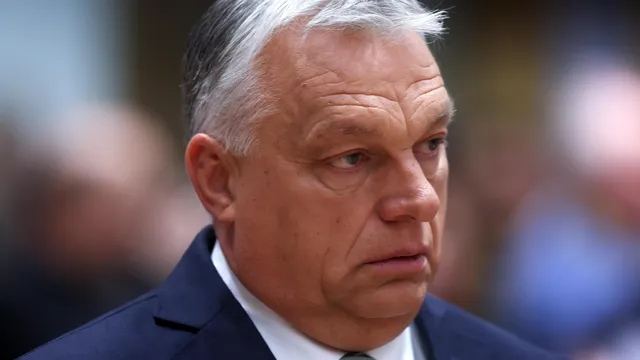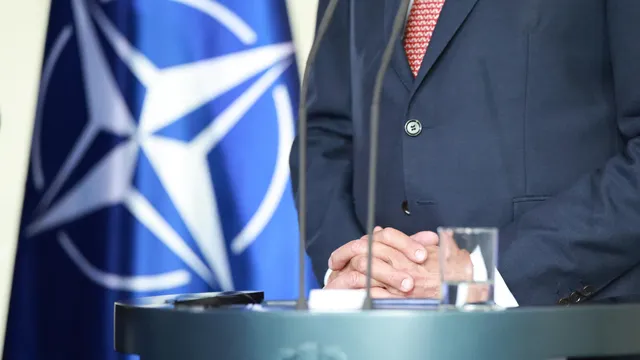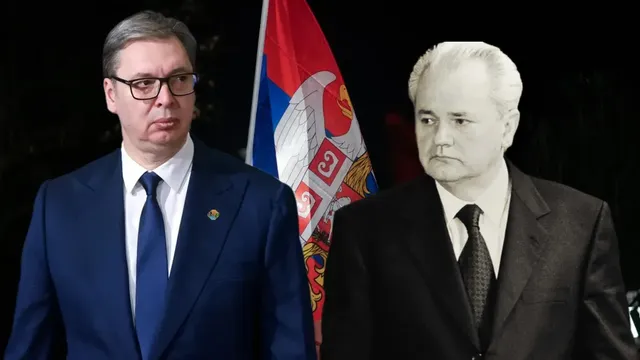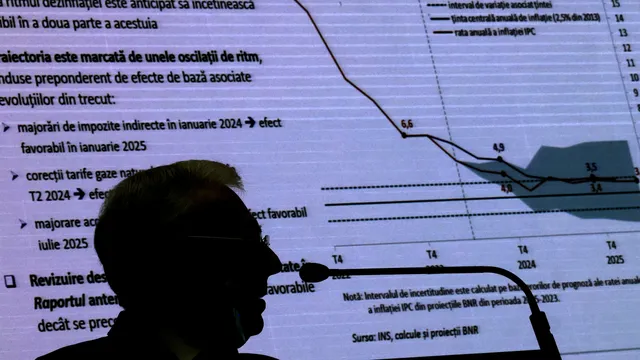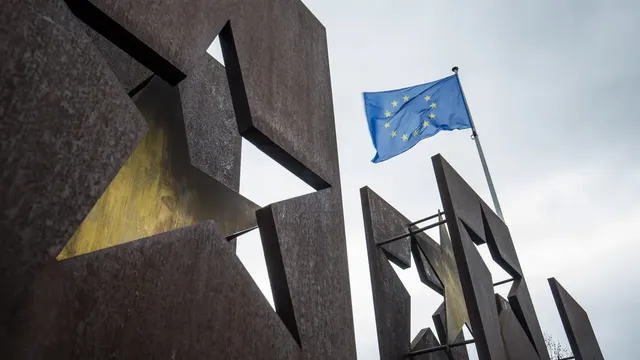For over two decades, Hungarian Prime Minister Viktor Orbán has systematically challenged liberal values, turning his country into what he calls an “illiberal democracy” and a “nation of Christian freedom.”
Along the way, he has earned admiration from a number of global leaders, including U.S. Vice President J.D. Vance and Georgian Prime Minister Irakli Kobakhidze. Donald Trump called him “smart” and a “tough guy.” “One of the most respected men, they call him a strongman,” Trump said in September 2024.
But despite support from abroad, Orbán’s grip on power is beginning to show cracks—though not necessarily from the liberal opposition, but from the center-right itself.
The Rise of a Domestic Challenger
In February 2024, a surprise political figure emerged: 44-year-old Péter Magyar, a former member of Orbán’s inner circle. The catalyst was a scandal involving the presidential pardon of a man who covered up child sexual abuse—an event that led to the live-on-air resignation of President Katalin Novák. Justice Minister Judit Varga, Magyar’s ex-wife, also stepped down. The scandal damaged Orbán’s image as a defender of “traditional family values.”
Magyar gave a powerful interview to the opposition YouTube channel Partizán, harshly criticizing corruption and nepotism in the government. According to activist Róbert Puzsér, head of the Civil Resistance movement, Magyar is carefully positioning himself not to alienate the conservative voter base—especially in rural Hungary, traditionally a stronghold of Fidesz.
Magyar’s opposition party TISZA now leads Orbán’s Fidesz by 9% to 18% in most polls. Only the pro-government think tank Századvég reports a lead for Fidesz.
Orbán’s Strategy Under Pressure
After 15 years in power, Orbán’s government is now facing tangible issues: deteriorating hospitals and schools, a crumbling rail network, and low public sector wages. Magyar warns of a “Hungary in decay.”
Fidesz continues to rely on a familiar strategy: mobilization through fear. This has proven effective in the past—during the 2015 refugee crisis, the war in Ukraine, and under the banner of “child protection.” In one instance, the government organized a referendum asking questions such as: “Do you support children receiving sexual orientation lessons without parental consent?”—to which the public overwhelmingly voted “no.”
Orbán continues to stoke cultural conflict. His party banned the Budapest Pride Parade, but still, between 100,000 and 200,000 people joined the march—an act of support not only for LGBTQ+ rights but also for freedom of speech and assembly.
A Reshaped Electoral System and Judicial Control
Since returning to power in 2010, Orbán has overhauled the electoral system—reducing the number of parliamentary seats and eliminating the second round of voting. In 2014, Fidesz won 67% of the seats with just 45% of the vote. Orbán has also appointed loyal judges to the Constitutional and Supreme Courts.
Back in 2014, he openly declared he was building an “illiberal state,” one that “does not reject freedom, but does not place liberalism at the center of state organization.” His ideologist, philosopher András Lánczi, calls the system “political realism” based on “experience, not utopias or moralizing.”
Global Admiration, Domestic Trouble
Orbán’s model—centered on clear messaging and media control—is admired by many right-wing politicians across Europe and the U.S. Leaders from Slovakia, Georgia, and far-right parties in Germany, Austria, and the Netherlands share his views.
But while international support grows, Hungary’s economy is faltering—heavily dependent on Germany’s automotive sector. Orbán can no longer guarantee a rising standard of living. Even Lánczi admits that after such a long time in office, “trust is eroding.”
A Political Battle for Hungary’s Soul
If Orbán loses the election in April 2026, it would mark a political turning point. According to pro-Fidesz analyst Zoltán Kiszelly, the party still commands a solid base of 2 million voters—but that may no longer be enough. The same goes for Magyar’s TISZA party.
The election will be decided by undecided voters. In 2022, Orbán portrayed himself as the “candidate of peace,” warning that the opposition would drag Hungary into the war in Ukraine. The tactic worked in a country with painful historical memories of foreign invasions.
Now, analysts believe that whether or not the war ends, Orbán will continue to use it—either presenting himself as a peacemaker or attacking the EU over its sanctions on Russia. He maintains close ties with Vladimir Putin, promising cheap Russian gas and oil.
But his opponents hope that TISZA and Magyar will maintain their lead. “Hungary is at a crossroads,” says activist Puzsér. “We will either move toward democratic transition from this semi-authoritarian regime, or toward dictatorship.”
And Orbán? In March, he declared that this is a battle “for the soul of the West.” Many now see the upcoming election as a battle for the soul of Hungary itself. | BGNES
------------------------------------------------------------
Analysis by Nick Thorpe, BBC

 Breaking news
Breaking news
 Europe
Europe
 Bulgaria
Bulgaria
